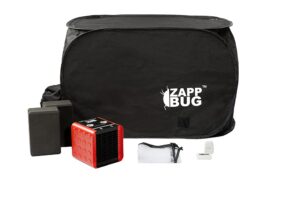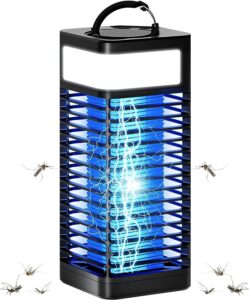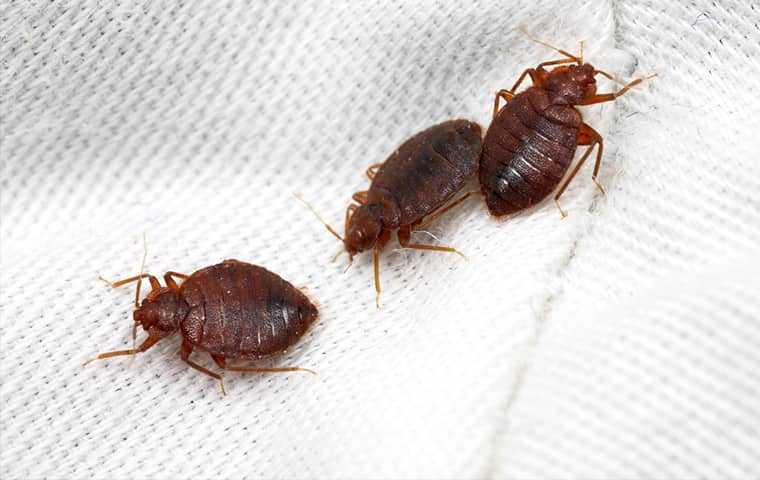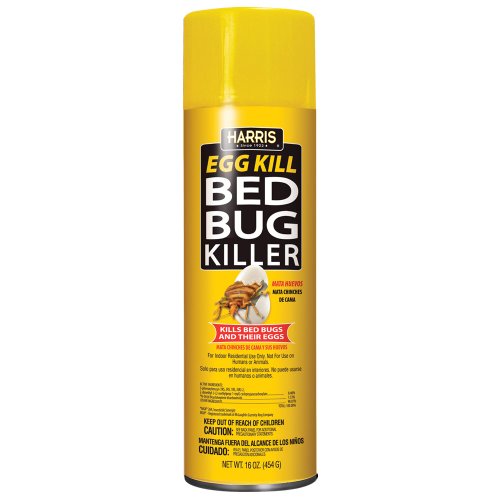Is There a Zapper for Bed Bugs?
Every homeowner’s nightmare,
Ever had that itching sensation in bed and wondered if you had an unwanted guest?
Understanding the Menace: What are Bed Bugs ?
Bed bugs, tiny nuisances of the night, have been the bane of human existence for centuries. These minuscule insects, typically reddish-brown and oval-shaped, have an innate ability to stay hidden, making their detection all the more challenging. Their nocturnal nature means they’re most active at night, usually when their unsuspecting victims are sound asleep. They leave behind a trail of itchy welts and, in some cases, allergic reactions.
These pests primarily feed on human blood, but in the absence of people, they might turn to animals. Their quick reproductive cycle is another reason for concern. A single female bed bug can lay hundreds of eggs, each roughly the size of a speck of dust. Within a month, these eggs hatch into nymphs, ready to feed, turning a small problem into a significant infestation in a short span.
- 100% Kill Efficacy Bedbugs, Mites, Eggs
- Lasting Protection
- USDA BIO-certified
- Plant Extract Based & Non-Toxic
- Child & Pet Safe
The Quest for Effective Solutions
The journey of finding an efficient solution for
For homeowners and renters alike, the mere mention of
Traditional Approaches to Bed Bug Control
Historical methods to counteract
Fast forward to more recent times, the use of pesticides became the go-to for many. Chemical treatments, though effective to a certain extent, came with their own set of challenges. Not only were there concerns about the toxic nature of these chemicals, but
You might be interested in: Does Lysol Kill Bed Bugs? The Complete Breakdown
The Buzz about Bug Zappers
The emergence of bug zappers promised a modern, seemingly effortless approach to dealing with pests. These devices, primarily designed for flying insects, employ ultraviolet light to attract bugs. Once lured, an electric grid zaps them, offering a chemical-free solution to the bug problem. The appeal of such a device is understandable: it’s eco-friendly, relatively safe, and requires minimal intervention once set up.
However, for
- Bedbug Detection and Protection
- Effective, Heav Duty, Versatile Design
- Use under bed posts and furniture legs
- Bed bugs climb in but cannot climb out
Does a Bed Bug Zapper Exist?
In the vast market of pest control, there are indeed devices that claim to zap
Furthermore, while the concept sounds promising, its efficacy is debated. As

How Effective are Bug Zappers against Bed Bugs ?
When the general populace thinks of bug zappers, they often picture those summer nights where the repetitive zap sound indicates the demise of another pesky mosquito. However, when it comes to
Many current bug zappers utilize ultraviolet light as the main attractant. While this works brilliantly for insects like mosquitoes and moths,
Pros of Using Zappers
The primary advantage of using zappers lies in their ability to offer a chemical-free, eco-friendly solution. There’s a certain peace of mind knowing that you’re not dousing your living spaces with potentially harmful chemicals. Plus, for those who are environmentally conscious, zappers present a more sustainable method. Their operation is also straightforward — set them up, turn them on, and let them do their work.
Another benefit is their versatility. While they might not be the ultimate solution for
The Downside of Bug Zappers
However, as with all things, bug zappers are not without their flaws. For one, the common zappers designed for flying insects might not be effective for ground-crawling bugs like the bed bug. There’s also the concern of them becoming a nuisance. The constant zapping sound, especially in quiet nighttime environments, can be quite disruptive.
Besides, there’s also the challenge of maintenance. Dead bugs accumulate, requiring regular cleaning for the device to remain effective. Neglecting this can result in reduced efficacy and potential fire hazards. Moreover, some might find the sight of electrocuted bugs unpleasant, especially if the zapper is placed within a living space.

Alternative Bed Bug Solutions
While zappers have their place in the pest control arsenal, there are other solutions more tailored to
Then there are the traditional chemical treatments. While concerns about toxicity exist, many modern pesticides are designed to be safe for household use. They work deep into crevices and other hiding spots, ensuring a thorough extermination. Another alternative is diatomaceous earth, a natural substance that dehydrates and kills
- Kills Bed Bugs & Their Eggs
- Surface spray to beds, mattresses and more
- Intended for indoor residential
- Helps to treat deep into cracks and crevices
Expert Recommendations
For those battling bed bug infestations, expert advice is invaluable. Most professionals in the field would agree that while bug zappers have their merits, they may not be the go-to solution for
It’s also beneficial to invest in preventive measures. Using protective covers for mattresses, regularly inspecting beds and furniture, and avoiding bringing second-hand furniture into homes without a thorough check can go a long way in keeping these pests at bay. Always remember, it’s easier to prevent an infestation than to deal with one.
You might be interested in: Zinus Mattress Review: Unveiling Comfort and Quality
FAQs
Why aren’t
Unlike many flying insects,
Can UV light kill bed bugs?
UV light isn’t the most effective method. Heat treatments are more reliable.
What’s the primary attraction for
Humans! They’re primarily attracted to our heat and the carbon dioxide we produce.
How often should I inspect for
Regular inspections, especially after traveling or receiving second-hand furniture, can be beneficial.
Are natural remedies effective against
While some may offer temporary relief, professional treatments are usually more effective in the long run.







